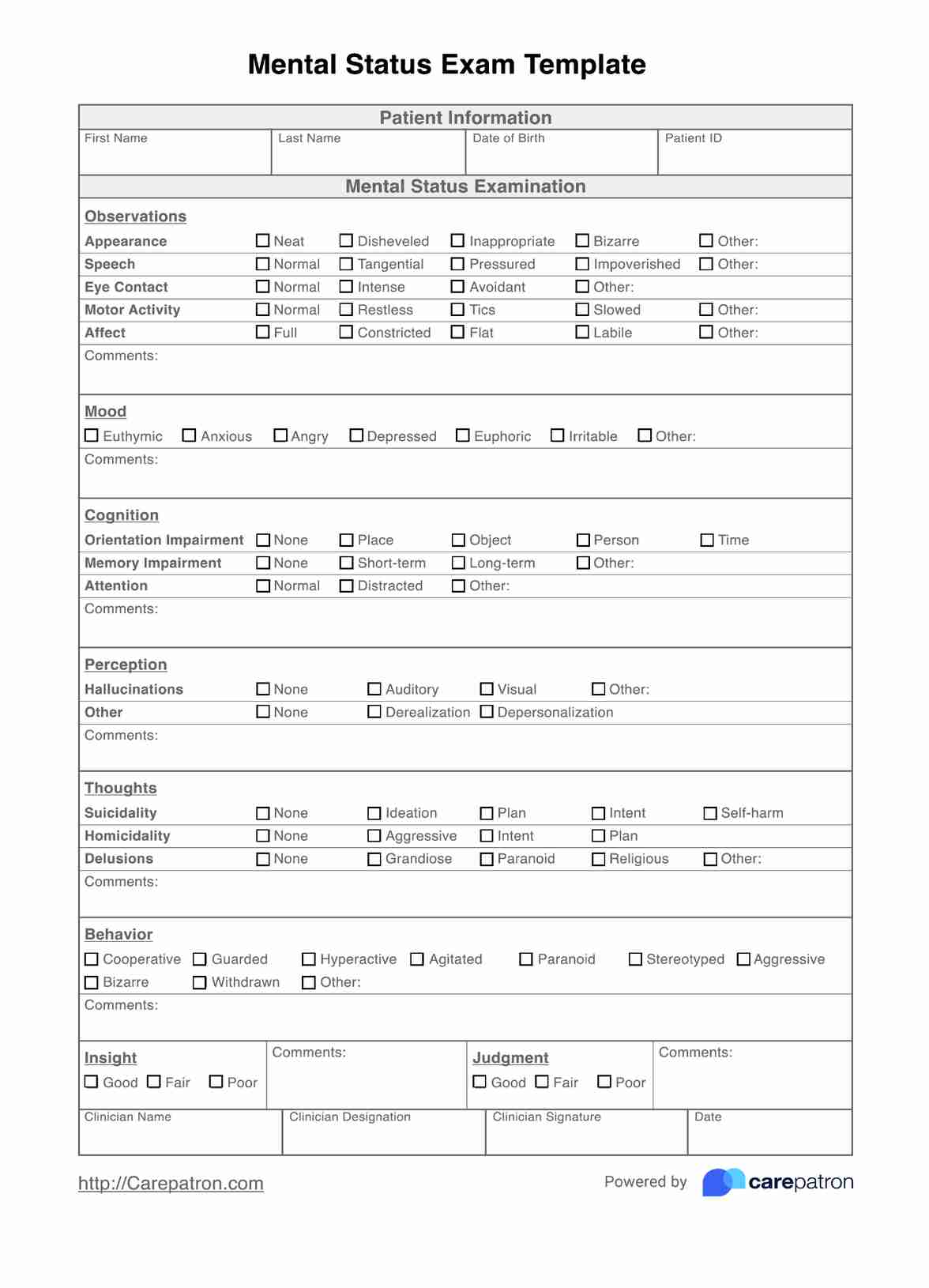To write a brief Mental Status Exam (MSE), focus on key areas such as appearance, behavior, speech, mood, affect, thought process, thought content, cognition, insight, and judgment. Provide a concise description of the individual's presentation in each area, noting any abnormalities or noteworthy observations to provide a picture of their mental functioning during assessment.

Mental Status Exam Template
Use our concise and customizable Mental Status Exam Template to evaluate clients' mental state and functioning in a structured way.
Mental Status Exam Template Template
Commonly asked questions
The five categories of the Mental Status Exam (MSE) typically include appearance and behavior, speech and language, mood and affect thought content, and cognitive function. Each category assesses different aspects of an individual's mental state to evaluate their cognitive and emotional functioning comprehensively.
To write a good Mental Status Exam (MSE), be concise but thorough. Objectively describe your observations across all relevant domains. Organize your assessment in a logical flow. Use clear, professional language with objectivity. Document any positive and negative findings that may aid diagnosis and treatment planning.
EHR and practice management software
Get started for free
*No credit card required
Free
$0/usd
Unlimited clients
Telehealth
1GB of storage
Client portal text
Automated billing and online payments











